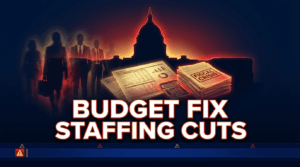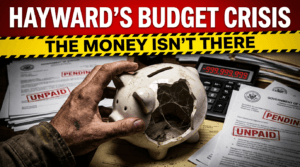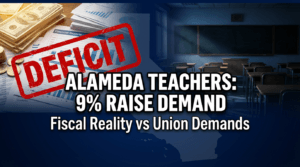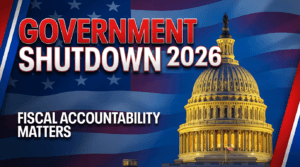Hayward Leaders Slash Their Own Pay as City Faces Financial Collapse—Here’s What They’re Not Telling You
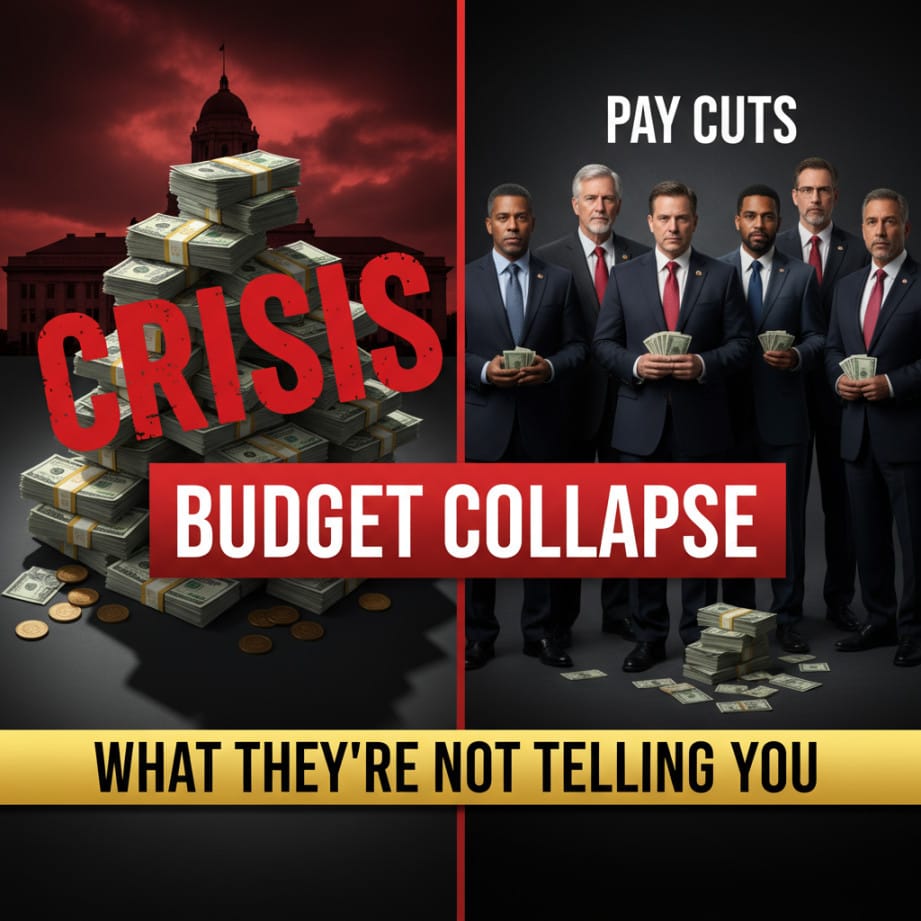
When city officials voluntarily cut their own salaries, you know the situation is dire. In September 2025, Hayward’s Mayor Mark Salinas, the entire City Council, and executive team agreed to slash their compensation through the end of the fiscal year due to what they euphemistically called a “budgetary shortfall” in the General Fund.
But don’t let the political theater fool you. This isn’t noble leadership—it’s damage control. Behind the headlines of self-sacrifice lies a deeper story of fiscal mismanagement, bloated government spending, and the inevitable consequences of California’s anti-business policies finally coming home to roost at the local level.
Hayward’s budget crisis isn’t just a local problem—it’s a preview of what’s coming to cities across California as decades of progressive governance collide with economic reality.
The Real Story Behind the Pay Cuts
Political Theater vs. Fiscal Reality
While Mayor Salinas and the council want credit for their “sacrifice,” let’s examine what these pay cuts actually mean. City council salaries, while not insignificant, represent a tiny fraction of any municipal budget. These symbolic gestures might generate positive headlines, but they won’t solve the underlying structural problems that created this crisis.
The real question isn’t whether officials should cut their pay—it’s how a city the size of Hayward, with a population of over 160,000 and substantial property tax revenue, managed to find itself in such dire financial straits that symbolic pay cuts became necessary.
Warning Signs Were Ignored
Budget crises don’t happen overnight. They’re the result of years of poor decision-making, unrealistic revenue projections, and spending commitments that exceed a city’s ability to pay. Hayward’s current predicament reflects a pattern of fiscal irresponsibility that conservative taxpayers have been warning about for years.
The city’s leadership likely knew this crisis was coming long before September 2025. Budget shortfalls of this magnitude typically develop over multiple fiscal cycles, meaning officials had opportunities to make necessary corrections before reaching the point where emergency measures became unavoidable.
California’s War on Local Business
The Anti-Growth Environment
Hayward’s budget problems can’t be separated from California’s broader assault on business and economic growth. The state’s regulatory environment, combined with some of the nation’s highest taxes, has created a climate where businesses flee rather than expand.
When businesses leave or fail to grow, cities lose the commercial property taxes, sales tax revenue, and economic activity that fund essential services. Hayward’s budget crisis is partially a symptom of California’s larger economic decline—a self-inflicted wound caused by progressive policies that prioritize ideology over prosperity.
The Minimum Wage Trap
California’s aggressive minimum wage increases, while popular with progressive voters, create significant budget pressures for municipalities. Cities must pay higher wages to their own employees while simultaneously seeing local businesses struggle with increased labor costs that reduce their ability to generate tax revenue.
This creates a vicious cycle: higher mandated wages increase city expenses while reducing the economic activity needed to fund those expenses. Hayward’s budget crisis likely reflects this fundamental contradiction in progressive economic policy.
The Hidden Costs of Progressive Governance
Pension Obligations and Union Contracts
While Hayward officials haven’t released detailed information about their budget shortfall, California cities typically face enormous pressure from pension obligations and union contracts negotiated during more prosperous times.
Public employee unions have consistently negotiated generous benefits packages that seemed affordable when property values and tax revenues were growing rapidly. Now, as economic growth stagnates and costs continue rising, these commitments represent an ever-larger share of municipal budgets.
Regulatory Compliance Costs
California’s maze of environmental regulations, labor laws, and bureaucratic requirements imposes enormous compliance costs on local governments. Cities must hire additional staff, conduct expensive studies, and navigate complex approval processes that drain resources from core services.
These hidden costs rarely appear in budget discussions, but they represent a significant drain on municipal resources that ultimately contributes to fiscal crises like Hayward’s.
What the Pay Cuts Really Mean
Avoiding Difficult Decisions
By focusing attention on their own pay cuts, Hayward’s leadership is avoiding more difficult conversations about structural budget problems. Real fiscal reform would require examining every department, questioning long-term commitments, and potentially making unpopular decisions about city services and employment.
Pay cuts for elected officials are politically safe—they generate positive publicity without addressing underlying problems. It’s much harder to reform pension systems, renegotiate union contracts, or eliminate unnecessary programs that have developed political constituencies.
Setting a Dangerous Precedent
More troubling, these symbolic pay cuts may actually make the underlying problems worse by creating the illusion that leadership is taking meaningful action. When officials can point to their own sacrifices, it becomes easier to avoid the systemic changes necessary for long-term fiscal health.
This approach treats symptoms rather than causes, virtually guaranteeing that future budget crises will be more severe and require more dramatic interventions.
The Taxpayer Perspective
Where’s the Accountability?
Conservative taxpayers have every right to ask how their money was managed so poorly that emergency measures became necessary. Budgets don’t fail by accident—they fail because of poor planning, unrealistic assumptions, and spending commitments that exceed realistic revenue projections.
Before praising officials for cutting their own pay, residents should demand detailed explanations of how the city reached this point and what specific changes will prevent future crises.
The Service Quality Question
While officials cut their salaries, what’s happening to the city services that residents actually depend on? Are police and fire departments maintaining adequate staffing? Is road maintenance being deferred? Are parks and recreation programs being eliminated?
The real measure of fiscal responsibility isn’t whether politicians take pay cuts—it’s whether essential services continue to be delivered efficiently and effectively.
Lessons for Conservative Governance
The Importance of Fiscal Discipline
Hayward’s crisis demonstrates why conservative principles of fiscal discipline and limited government aren’t just ideological preferences—they’re practical necessities for sustainable governance.
Cities that live within their means, maintain reasonable reserves, and avoid unsustainable spending commitments don’t face these emergency situations. Conservative fiscal management may seem boring compared to ambitious progressive programs, but it prevents the kind of crisis Hayward now faces.
Transparency and Accountability
Real conservative governance requires honest communication with taxpayers about fiscal realities. Instead of waiting until crisis strikes, responsible officials regularly communicate budget challenges and involve residents in difficult decisions about priorities and trade-offs.
Hayward’s leadership should have been having these conversations years ago, before the situation became desperate enough to require emergency measures.
The Broader California Context
A Preview of Coming Attractions
Hayward won’t be the last California city to face this kind of budget crisis. The state’s economic policies have created unsustainable fiscal pressures that will eventually affect municipalities throughout California.
Conservative observers should view Hayward’s situation as an early warning system—a preview of what happens when progressive governance meets fiscal reality. Other cities facing similar pressures should learn from Hayward’s mistakes rather than repeating them.
The Need for Systemic Reform
Individual cities can’t solve problems created by state-level policies. California needs comprehensive reform of its tax structure, regulatory environment, and approach to public sector compensation to give municipalities the tools they need for sustainable fiscal management.
Until these broader reforms occur, cities like Hayward will continue facing impossible choices between fiscal responsibility and political popularity.
Moving Forward: Real Solutions vs. Political Theater
Hayward’s budget crisis requires more than symbolic gestures and political theater. Real solutions demand honest assessment of spending priorities, realistic revenue projections, and the political courage to make difficult decisions about the size and scope of city government.
The pay cuts may generate positive headlines, but they won’t solve the underlying problems that created this crisis. Only fundamental changes to how the city operates—and how California governs—can prevent future fiscal emergencies.
Conservative taxpayers deserve better than symbolic sacrifices from their elected officials. They deserve competent fiscal management that prevents crises rather than responding to them with emergency measures.
Hayward’s situation serves as a warning to communities across California: progressive governance may promise everything, but it can’t deliver sustainable prosperity. The bill for decades of fiscal irresponsibility is coming due, and symbolic pay cuts won’t be enough to pay it.
Call to Action
Demand accountability from your local officials about their city’s fiscal health before crisis strikes. Support candidates who prioritize fiscal responsibility over popular but unsustainable programs. Share this article to warn other communities about the real costs of progressive governance. The future of local government depends on citizens who refuse to accept political theater as a substitute for responsible fiscal management.




